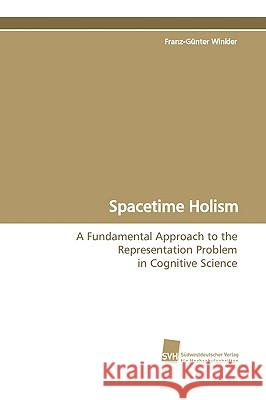Spacetime Holism » książka
Spacetime Holism
ISBN-13: 9783838104188 / Angielski / Miękka / 2009 / 140 str.
The basic concepts of spacetime holism are introduced in close relation to David Bohm's holistic philosophy. It is shown how spacetime holism is inspired by and helps to understand the concepts associated with the theory of self- organization. A crucial chapter is devoted to the interpretation of relativity theory, where one of the seemingly strangest suggestions of spacetime holism, namely the full integration of space and time, receives a basis in theoretical physics. The paradigm of information processing is criticized by showing that information and processing are inseparable and by arguing for a duality relation between computation and meaning. After formulating spacetime holism's approach to the so-called representation problem of cognitive science, the conceptual tools are used to address two philosophical aspects of cognition which are usually pushed aside: the "hard problem of consciousness" and the question how time passes.
The basic concepts of spacetime holism are introduced in close relation to David Bohms holistic philosophy. It is shown how spacetime holism is inspired by and helps to understand the concepts associated with the theory of self- organization. A crucial chapter is devoted to the interpretation of relativity theory, where one of the seemingly strangest suggestions of spacetime holism, namely the full integration of space and time, receives a basis in theoretical physics. The paradigm of information processing is criticized by showing that information and processing are inseparable and by arguing for a duality relation between computation and meaning. After formulating spacetime holisms approach to the so-called representation problem of cognitive science, the conceptual tools are used to address two philosophical aspects of cognition which are usually pushed aside: the "hard problem of consciousness" and the question how time passes.











